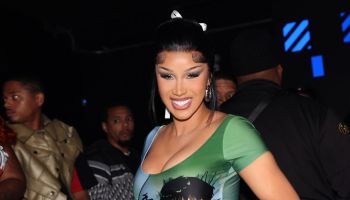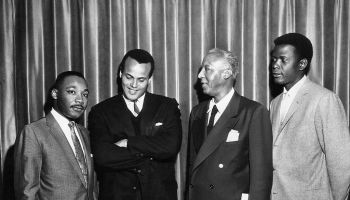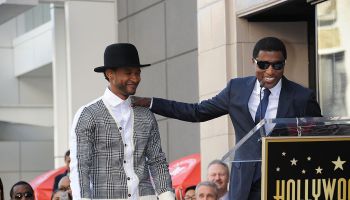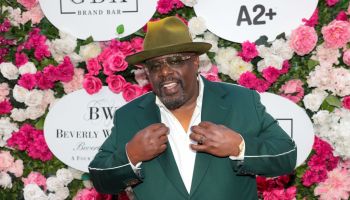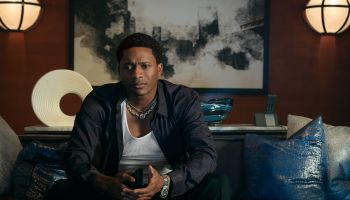Based on Tatiana de Rosnay’s New York Times best seller, Sarah’s Key is the story of an American journalist in Paris named Julia Jarmond, played by actress Kristin Scott Thomas.
Julia’s research for an article about the Vel’ d’Hiv Roundup in 1942 in France ends up turning her own world upside down.
Hitting theaters today and directed by the brilliant Gilles Paquet-Brenner, this journalistic thriller is a dramatic tale of survival and horrific memories that switches smoothly back and forth between 1942 and the present day, establishing a clear, strong bond between the two periods.
In July 1942, Sarah, a 10 year-old girl, is taken with her parents by the French police as they go door-to-door in the middle of the night arresting Jewish families.
Desperate to protect her younger brother, Sarah locks him in a bedroom cupboard ― their secret hiding place ― and promises to come back for him as soon as they are released. More than 60 years later, Julia stumbles on the terrible secret that the home Sarah’s family was forced to leave is about to become her own.
Staying true to the book, Kristin Scott Thomas gives a wonderful performance as an American journalist who wants to know the truth at all costs. Melusine Mayance, who plays 10-year-old Sarah, is absolutely brilliant in such a tricky role for a young girl. Gilles describes her as an actress who “knows exactly what she is trying to convey, has a kind of sixth sense about where the camera is and always hits her mark without the slightest hesitation.”
As Julia’s life becomes entwined with Sarah’s heart-breaking story, she must tackle the complex issue of how to live with the past and keep moving forward.
GlobalGrind got the pleasure of sitting down with the director of Sarah’s Key, Gilles Paquet-Brenner and talked about everything from the Holocaust, to the cast and his crush on American actress Amy Adams.
[pagebreak]
GG: Sarah’s Key is based on the best selling book by journalist Tatiana de Rosney. Were you fan of the book?
Gilles Paquet Brenner: Yeah! When I read the book I just loved it. It’s not like here where they offer you a job, in France you are the one who originates or starts the project. So I read the book and I fell in love with it, then thought it would be great material for my next movie.
Was there any pressure attached to adapting a successful novel into film?
No, because I was very lucky to read the book before it became so successful. It was just released in France and it was doing good business but no one could have ever thought this would happen, especially in the U.S. and other countries. I was dazzled by its captivating plot and the way the story also explores the gray areas which few films deal with, such as the attitude of the regular people during the Roundup. It was quite simple: I read it, fell in love with it and made the movie.
Most people are unfamiliar with the troubled period of French history and you brought it to light with this film. Was this the main reason you wanted to turn Sarah’s Key into a movie?
It’s one of the reasons. The Vel’ d’Hiv roundup is something us French used to know. I mean, we knew the expression, we knew that President Jacques Chirac apologized, but I think most of the people, including me, didn’t really know the details. When I read Tatiana’s book, I realized that it was important in French perspective to bring that to a large audience so that everybody can really know what happened about the French police arresting Jewish people and sending them to the camps.
It’s interesting for the younger generation because you only learn in school that there was a collaboration but the Vel’ d’Hiv Roundup is maybe like four lines and I think now it will be different, because I think it’s a major event considering the French Government’s attitude towards the Jews. Another reason that’s even more important to me was to have these two timelines, like nowadays and 1942. It’s not only the facts, but also the consequences on future generations and about survival skills. The journalist, played by Kristin Scott Thomas, the fact that you follow this woman nowadays makes you feel that history is closer.
Kids just don’t care much about that because obviously people have a lot of problems today so they maybe don’t want to deal with yesterday’s people’s problems and what the book showed and what I tried to also show in the film, was that you have to deal with you past. You have to know your past, because the problems from today can come from yesterday. Facing them and understanding them helps you to build your future ― I was very interested in that and it’s the French perspective, not only on the Holocaust but on history.
[pagebreak]
It’s almost like the Vel d’Hiv Roundup was taboo?
After the war, the French society was totally torn apart and France needed to become France again so they tried to avoid difficult subject matter. Starting in the 1970s a lot of people, historians and journalists, and I agree with them that it was time to re-evaluate this and face our pasts. It started in the ’70s and this year with Tatiana’s book and my movie now, the French population is very aware of what happened.
You mentioned that you are of Jewish origin and that the Holocaust resonated with your own family history. How much did you know about the roundup of the Jewish people by the French prior to reading the book? Was it hard for you to direct a movie that reflected a tragedy some of your family members went through during WWII?
I wouldn’t say hard. It was more like going back to my roots in a way and knowing more about my family. It was harder for my mother because she lost my grandfather when she was two, so she grew up without a father. So that is why I was very interested in the consequences of our generation because that is something I had to deal with on a personal level.
It was not a painful experience, I was more happy to pay tribute to these people and at least dedicate this to them, but it was a very strong experience for my mother. I totally forgot to tell my mother that the film was dedicated to the people and she discovered that during the screening. She wasn’t crying until then, she was brave but that killed her. It was kind of a relief too because my mom is the kind of person who didn’t like to talk much about it. Even though there weren’t any secrets, I knew everything about it, she didn’t like to talk and open up.
Throughout the entire movie, it smoothly transitions back and forth between 1942 and the present day. Was it difficult switching back and forth between the two periods while making sure your audience didn’t get confused?
It was definitely a challenge directing-wise. It was hard to keep the movie fluid and keep the audience interested and how the two periods in time would resonate with each other. I worked very hard on the script for that, so when we were in the editing room we didn’t change anything, it was at the right spot for everything. Jean Pierre, the editor, was a great editor so it was very helpful having him and you just have to be careful with your transitions, especially when you pass from one time to the other.
Can you talk about how you chose your actors? Who was the most difficult character to cast in Sarah’s Key?
Kristin Scott Thomas was a no brainer because she was creditable for French audiences as a person living in France for so long with perfect French and that’s Kristin. She’s been living in France for 25 years and she was married to a French guy and had two French children and even though she’s not American, she’s British, she totally has these two cultures and the French public knows her like that. So Kristin was easy. We met in New York and she loved the script but she wanted to make sure what my point of view was, so I told her and she said ‘OK, let’s go.’
After we found Melusine Mayance, she was the child or little Sarah and we were lucky that Melusine exists because I’m sure you realize how difficult this role is, especially for a little girl. But Melusine is like an adult dressed in a little girl’s body. We were just lucky she was there and I didn’t want to have this very childish child because I had this idea that you grow up way faster in times of war and Melusine has this maturity and so it was really helpful. We also have Aiden Quinn, which you know here in the U.S. and he had the same look as Melusine because I wanted the audience to see Sarah in Aiden’s eyes. The rest of the cast is mostly great stage actors in France because you have to build a cast around Kristin and that comes from the same family.
[pagebreak]
After assembling this talent, what was your artistic aim with the movie?
I wanted to make a movie which is accessible and mainstream, but also thought-provoking. Initially, my principal concerns were how to distinguish between the two periods and how to achieve and maintain the necessary restraint for the story without losing creativity. I wanted to show the completely different worlds in which Sarah and Julia exist ― the chaos of wartime and the Occupation contrasting with the relative comfort of Julia’s lifestyle. I chose to film all of the 1942 action with a handheld camera and short lenses, so we’re always with the characters, close to the action and then intercut with more lyrical scenes, such as the escape from Beaune-la-Rolande, to let the film breathe. For the present-day action, I opted for a very classical approach, paring down the scenes so that every close up and every movement would have meaning. My aim was for the audience to be able to follow the story without being distracted by my directorial style. The story had to come first.
With Sarah’s Key you became the first feature film director to shoot at the Holocaust Memorial in Paris. Can you talk about that and how it felt to be there?
It was interesting, especially since my grandfather’s name is on the wall and Kristin stops in front of it. The shooting was very quiet that day but everybody felt like it was a very special day and my mom was there! Totally by chance she was there and she had never seen her father’s name on that wall either, so it was special. I think we were all happy at the end of the day to go back to our warm houses because it was so loaded and you can see it in the movie! Spending the whole day was quite an experience.
Any American actors or actresses that you would love to work with?
I would say … I want to work with Amy Adams! BADLY! As for an actor, I would love to work with Daniel Day-Lewis.
What can we look forward to?
My next movie is called Dark Places and is based on Gillian Flynn’s book and it’s a thriller coming out in February!









